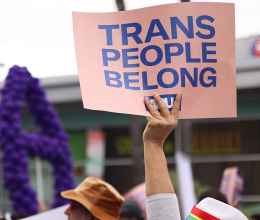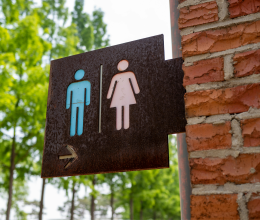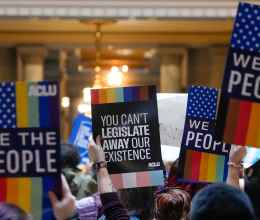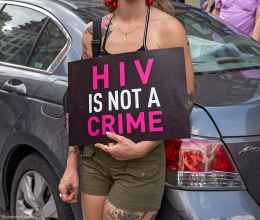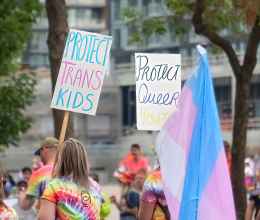
Transgender people like Marsha P. Johnson, Sylvia Rivera, Laverne Cox and Janet Mock have been at the forefront of the fight for liberation in the LGBTQ community since the Stonewall riots in 1969. Yet trans folks, and particularly trans people of color, face and experience a higher rate of violence and death than other groups within the LGBTQ community. The names of the mostly Black and brown trans people who have died, and some killed, over the last few years continues to grow.
Happy 75th Birthday Marsha ‘Pay It No Mind’ Johnson. Co-founder of Gay Liberation Front, Co-founder of S.T.A.R. and ACT UP member. Black Trans HIV+ Sex Worker Lives Matter today and everyday. We honor you. pic.twitter.com/cyqf4bnoG2
— ACT UP NY (@actupny) August 24, 2020
We know the names of trans people of color who were recent victims of deadly violence and we say their names: In Florida: Yaz'min Shancez, Bee Love Slater, Tony McDade, and the many in Jacksonville. Across America: Roxsana Hernandez, Muhlaysia Booker, Nina Pop, and Aerrion Burnett. Dozens of trans and nonbinary people across America whose lives were cut short since 2019. We should all be alarmed by these high rates of violence and harassment.
The number of the recently reported violent deaths of trans people of color in America is compounded by issues of inadequate access to healthcare for these especially marginalized Black and brown people, exacerbated by an inability for many to find stable work and housing, even after the landmark June Supreme Court decision explicitly outlawing workforce discrimination against LGBTQ people.
Trans people are our family members, friends, and neighbors. We all must ensure they can live their lives openly and without fear of discrimination.
Legislators returning to the Florida State Capitol for the 2021 session must use their power to make our communities and our state safer for transgender and all LGBTQ people to live by supporting the Florida Competitive Workforce Act. The ACLU of Florida has backed the bill in consecutive legislative sessions, following its introduction in 2009.
The Florida Competitive Workforce Act would explicitly expand the workplace protections of the June 2020 SCOTUS decision to include antidiscrimination protections for access to housing and public accommodations.
More than 40 years after Dade County Commissioner Ruth Shack shepherded passage of a comprehensive human rights ordinance for Greater Miami that became a model for communities across America, it is long past due that those protections be applied statewide. All Floridians deserve to live free from fear of discrimination at home and in public. It is long past due that Florida lawmakers make this a reality for all Floridians.
